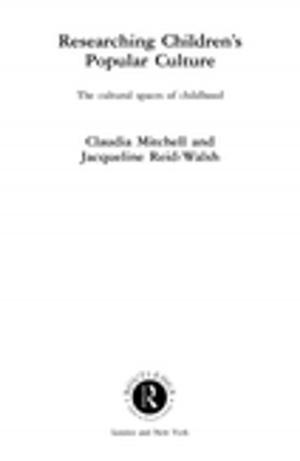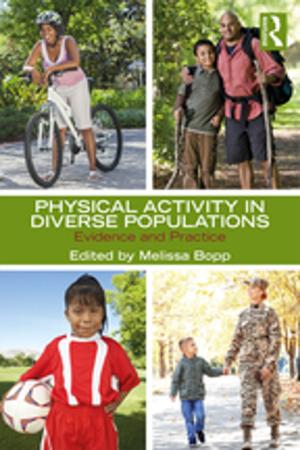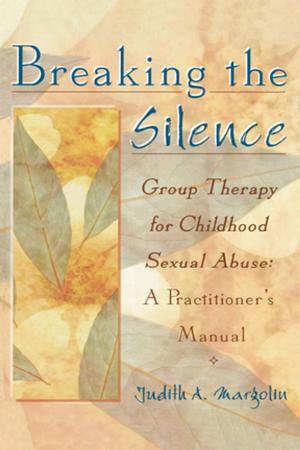Responding to Physical and Sexual Abuse in Women with Alcohol and Other Drug and Mental Disorders
Program Building
Nonfiction, Health & Well Being, Medical, Patient Care, Health Care Delivery, Family & Relationships, Family Relationships, Abuse| Author: | Bonita Veysey, Colleen Clark | ISBN: | 9781136429477 |
| Publisher: | Taylor and Francis | Publication: | December 6, 2012 |
| Imprint: | Routledge | Language: | English |
| Author: | Bonita Veysey, Colleen Clark |
| ISBN: | 9781136429477 |
| Publisher: | Taylor and Francis |
| Publication: | December 6, 2012 |
| Imprint: | Routledge |
| Language: | English |
Learn from the experiences of these program sites to develop better services for women with co-occurring disorders and histories of violence
This book explores the efforts of the Women, Co-Occurring Disorders and Violence Study to address the significant lack of appropriate services for women trauma survivors with co-occurring mental health and substance use disorders. Experts describe the services integration programs of nine participating sites that address the multiple needs of these women. In this guide, you will find useful strategies for integrating services that are responsive to the strengths and needs of the individual as well as the community.
This vital resource examines how-over a period of five years-sites designed, implemented, and evaluated their interventions. You will learn how sites developed their strategies for integrating services at both the clinical/individual level and at the services or systems level. The book also shows how trauma-informed, gender-specific, culturally competent care fosters treatment that is sensitive to related issues such as children and parenting, interpreting culture cues, and socioeconomic difficulties.
In Responding to Physical and Sexual Abuse in Women with Alcohol and Other Drug and Mental Disorders, you will learn about the details of nine different programs, including:
-
Franklin County Women’s Research Project-a collaborative project for rural women, designed and operated by local consumer/survivor/recovering women (CSRs)
-
The Triad Women’s Project-a semi-rural comprehensive system of care to respond to the needs of women and children
-
The Women Embracing Life and Living (WELL) Project-interventions include trauma, parenting, systems integration and mutual help groups with
Integrated Care Facilitators providing resource coordination and advocacy
services -
PROTOTYPES, Centers for Innovation in Health, Mental Health, and Social Services-the three levels of integration the Systems Change Center implemented
-
the Boston Health Commission-an integrated model of trauma-informed services culturally and linguistically appropriate for its service population of primarily poor Latina and African American women
-
Palladia’s Portal Project-a comprehensive trauma-informed intervention designed to put trauma and safety first to assist women remaining in treatment
-
Arapahoe House’s New Directions for Families-a family-oriented intervention for women and their dependent children
-
Allies-comprehensive, integrated services for women as well as intervention for their children, ages 5-10
-
The District of Columbia Trauma Collaboration Study (DCTCS)-a two-phase project addressing the needs of dually diagnosed women trauma survivors
Responding to Physical and Sexual Abuse in Women with Alcohol and Other Drug and Mental Disorders provides you with first-hand accounts of the process by which programs and service systems were transformed. As challenges were met and strategy was adapted to real world situations, the sites discussed in this text found new and improved methods for helping this unique group of women. The book offers tips, solutions, and possibilities to mental health professionals, substance abuse professionals, and domestic violence professionals, and even patients and/or clients searching for support.
Learn from the experiences of these program sites to develop better services for women with co-occurring disorders and histories of violence
This book explores the efforts of the Women, Co-Occurring Disorders and Violence Study to address the significant lack of appropriate services for women trauma survivors with co-occurring mental health and substance use disorders. Experts describe the services integration programs of nine participating sites that address the multiple needs of these women. In this guide, you will find useful strategies for integrating services that are responsive to the strengths and needs of the individual as well as the community.
This vital resource examines how-over a period of five years-sites designed, implemented, and evaluated their interventions. You will learn how sites developed their strategies for integrating services at both the clinical/individual level and at the services or systems level. The book also shows how trauma-informed, gender-specific, culturally competent care fosters treatment that is sensitive to related issues such as children and parenting, interpreting culture cues, and socioeconomic difficulties.
In Responding to Physical and Sexual Abuse in Women with Alcohol and Other Drug and Mental Disorders, you will learn about the details of nine different programs, including:
-
Franklin County Women’s Research Project-a collaborative project for rural women, designed and operated by local consumer/survivor/recovering women (CSRs)
-
The Triad Women’s Project-a semi-rural comprehensive system of care to respond to the needs of women and children
-
The Women Embracing Life and Living (WELL) Project-interventions include trauma, parenting, systems integration and mutual help groups with
Integrated Care Facilitators providing resource coordination and advocacy
services -
PROTOTYPES, Centers for Innovation in Health, Mental Health, and Social Services-the three levels of integration the Systems Change Center implemented
-
the Boston Health Commission-an integrated model of trauma-informed services culturally and linguistically appropriate for its service population of primarily poor Latina and African American women
-
Palladia’s Portal Project-a comprehensive trauma-informed intervention designed to put trauma and safety first to assist women remaining in treatment
-
Arapahoe House’s New Directions for Families-a family-oriented intervention for women and their dependent children
-
Allies-comprehensive, integrated services for women as well as intervention for their children, ages 5-10
-
The District of Columbia Trauma Collaboration Study (DCTCS)-a two-phase project addressing the needs of dually diagnosed women trauma survivors
Responding to Physical and Sexual Abuse in Women with Alcohol and Other Drug and Mental Disorders provides you with first-hand accounts of the process by which programs and service systems were transformed. As challenges were met and strategy was adapted to real world situations, the sites discussed in this text found new and improved methods for helping this unique group of women. The book offers tips, solutions, and possibilities to mental health professionals, substance abuse professionals, and domestic violence professionals, and even patients and/or clients searching for support.















